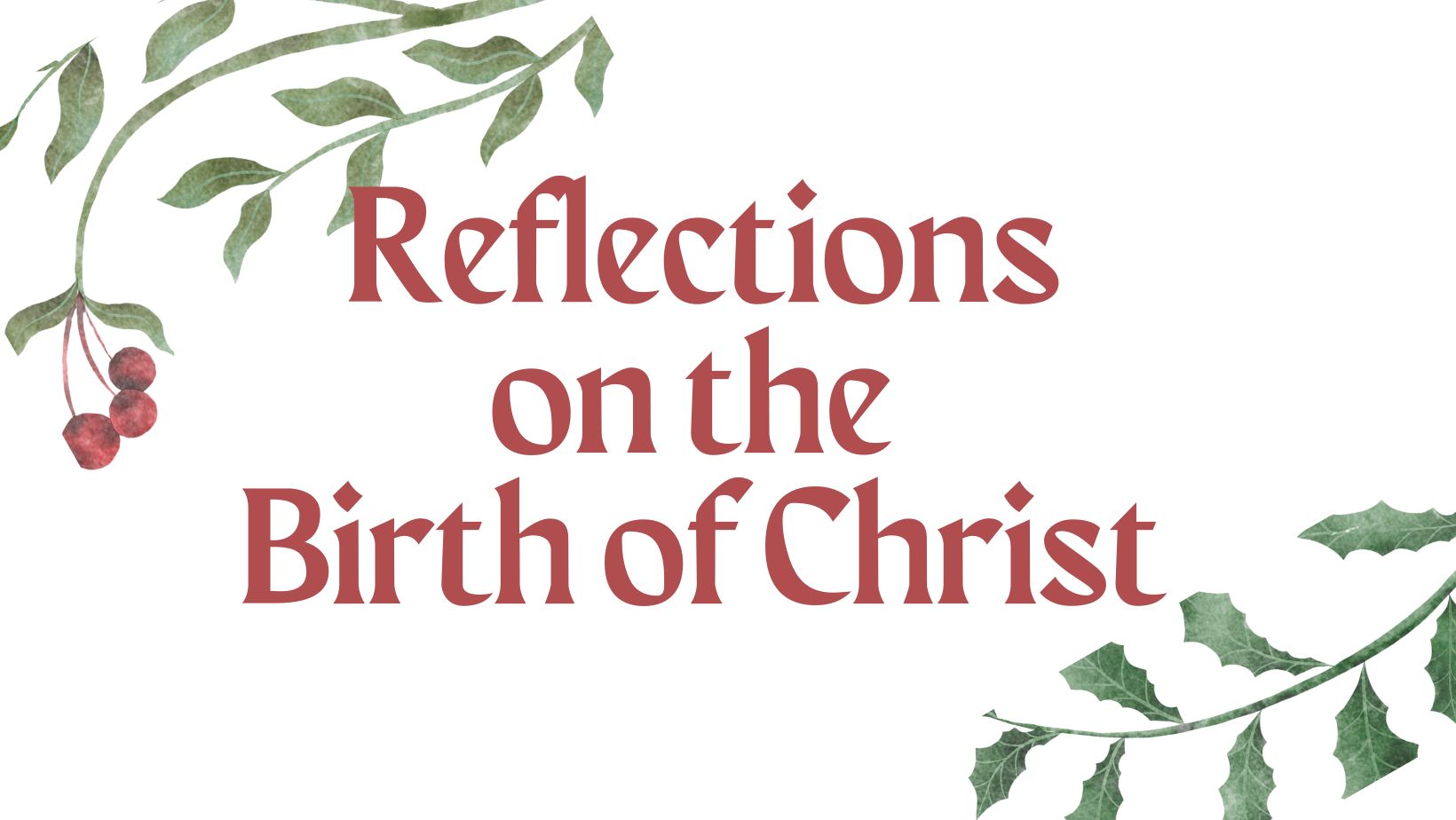Christmas is a time of year unlike any other. In fact, even the world recognizes this reality and sings Christmas carols such as, “It’s the Most Wonderful Time of the Year”. So, what makes Christmas so special in comparison to all the other holidays?
Christmas is indeed a unique time as it is when we remember and celebrate the most important and significant miracle in all of history: God taking on human flesh and becoming a man! Commonly referred to as the incarnation of Christ, it is a wonder to contemplate: how can a man be truly a man, yet at the same time remain truly God, the Creator and sustainer of all things? How can it be that while Jesus was a babe lying in the manger, all the fullness of deity dwelt bodily in Him (Colossians 2:9)? Yet it really happened, and we are more certain about this than we are that the sun will rise tomorrow. The real question is: why? Why did the Son of God have to take on human flesh? Was it so that God could demonstrate His miraculous power? Surely He did, but there’s so much more to it.
The writer of Hebrews had much to say in regard to why Jesus did what He did in taking on human flesh. Consider these amazing words:
“Therefore, since the children share in flesh and blood, He Himself likewise also partook of the same, that through death He might render powerless him who had the power of death, that is, the devil, and might free those who through fear of death were subject to slavery all their lives. For assuredly He does not give help to angels, but He gives help to the descendant of Abraham. Therefore, He had to be made like His brethren in all things, so that He might become a merciful and faithful high priest in things pertaining to God, to make propitiation for the sins of the people. For since He Himself was tempted in that which He has suffered, He is able to come to the aid of those who are tempted.” (Hebrews 2:14-18)
The writer uses very specific language when referring to Jesus’ humanity. He didn’t just appear to be a man as a phantom would, but He actually took on flesh and blood. Christ went to the cross as a representative of humanity, not of angels nor any other created beings. The language here is very precise: notice how the writer doesn’t say He gives help to every individual person on the face of the earth, but rather to the “descendant of Abraham”. According to Galatians 3:29 and Romans 4:11-12, all who are in Christ are children of Abraham by faith.
In light of all that truth, we come now to the main theme: that Christ had to be made like His brethren. Notice the phrase “had to be made”. In other words, becoming a man in order to take away our sins wasn’t a mere option or preference, it was absolutely necessary and our salvation would have been impossible to accomplish without it. It is such an essential doctrine that the early Church recognized that a denial of Christ’s humanity was outside of orthodoxy, and such heresy became known as docetism. Take away the humanity of Christ, and you take away the propitiatory nature of His sacrifice. God’s wrath would not be satisfied, and we would forever remain guilty of our sins against Him.
But wait, there’s more! If Christ were not a man, He would be unable to understand our weaknesses and intercede on our behalf as a high priest. In other words, Christ, being the eternal Son of God, would retain His knowledge about our weaknesses, but He would not be able to relate to them. But Jesus is indeed a man, and He does understand and sympathize with us! He experienced all of our weaknesses and limitations, including hunger, thirst, tiredness, sorrow, and pain, and yet He never once sinned. As the writer of Hebrews would later explain, “For we do not have a high priest who cannot sympathize with our weaknesses, but One who has been tempted in all things as we are, yet without sin” (Hebrews 4:15).
There is another element to Christ’s experience as a man that we must also consider: His death. While He was on the earth, Christ partook in all our sufferings, including death. Think about that for a moment. Jesus, the Son of God, experienced physical death and did so in the most humiliating and agonizing way imaginable. Why did Jesus have to die? The answer is quite simple: the wages of sin is death (Romans 6:23). Though Jesus never sinned, He had to die as though He did in order that He would be our perfect substitute and that we may, in exchange, receive His imputed righteousness. His sacrifice could not have been a complete and satisfactory one without death for it is “by His wounds you have been healed” (1 Peter 2:24). Healed from what? Our sin, guilt, and shame, all of which have been washed away by His blood. But this is only part of the story. Because Christ died as a righteous, perfect man, God vindicated Him by raising Him from the dead, and now the same power that raised Jesus from the dead has raised us from our spiritual death (Ephesians 2:5) and will raise us from our physical death on the last day (John 6:44). For the Christian, the fear of death has been removed once and for all. We are, as our text reminds us, no longer living our lives enslaved to that fear. As Jesus Himself said, “I am the resurrection and the life; he who believes in Me will live even if he dies, and everyone who lives and believes in Me will never die” (John 11:25-26).
As we celebrate Christmas this year, let us remember the great lengths that God went through to accomplish our salvation in Christ Jesus. Remember the humility and condescension that Christ undertook when He “…did not regard equality with God a thing to be grasped, but emptied Himself, taking the form of a bond-servant, and being made in the likeness of men” (Philippians 2:6-7). It was no small thing for the Son of God to be made like His brethren. It cost Him everything. That baby lying in an animal feeding trough, of whom we sing so much about this time of year, would one day grow up to be our propitiation. It surely gives us something to pause and reflect on when we decorate our homes with nativity sets and when we sing our beloved Christmas hymns that speak to these beautiful truths.

